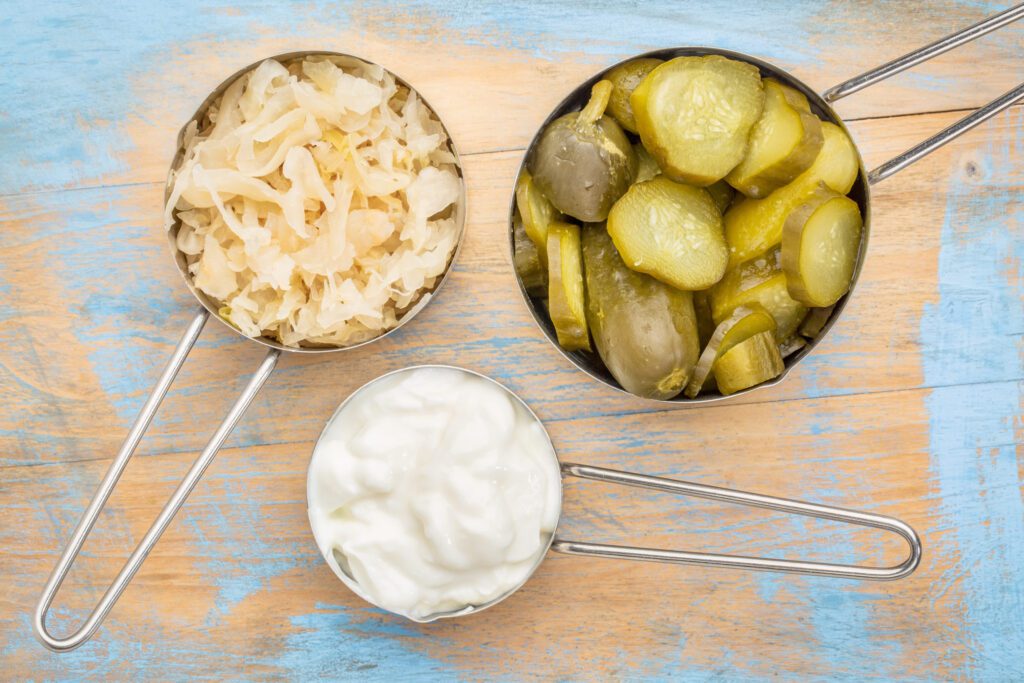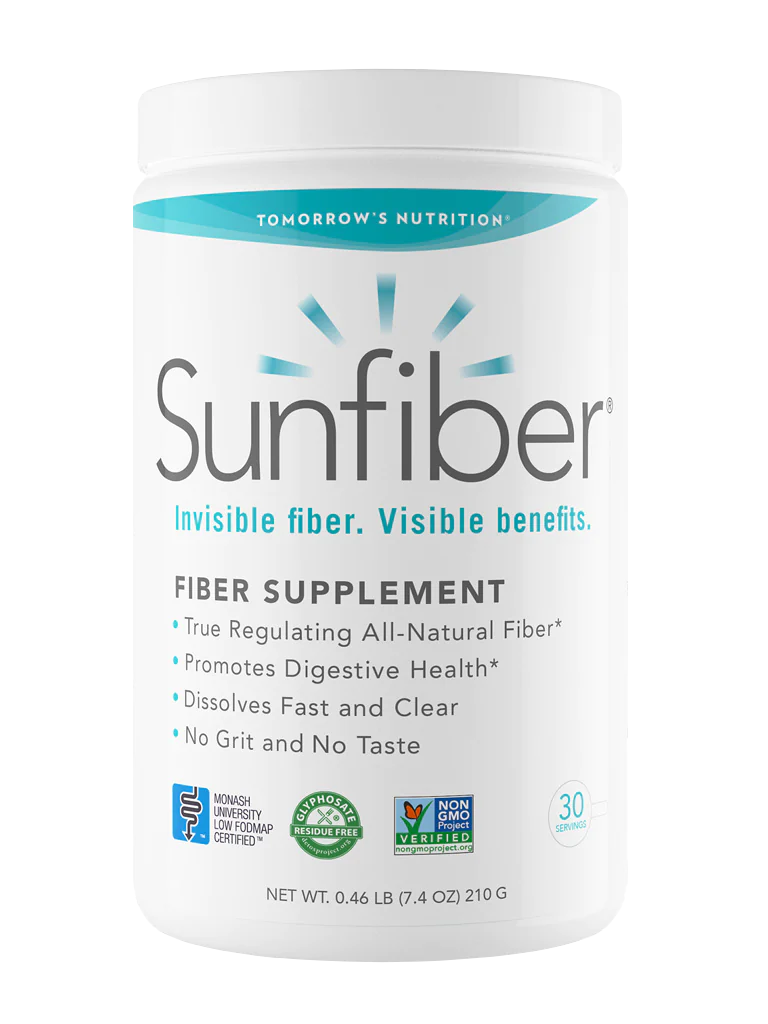America’s growing fascination with fermented foods has supermarkets stocking up on live-culture yogurts, kefir and sauerkraut. Savvy restaurateurs are preparing their own pickles, kombucha and kimchi. Research suggests that these foods’ beneficial microorganisms may support not only a healthy digestive tract, but also your overall wellness. We compiled this information to help you understand and maximize the benefits of these super-powered foods.
Fermentation is natural
Fermentation is the natural process microorganisms use to break down one substance into a simpler substance. For example, yeast converts sugar to alcohol during winemaking. Bacteria convert sugar to acid to make yogurt. This process also makes yeast bread rise. These same microorganisms are also known to promote a healthy gut.
Supermarket fermented foods may not contain live beneficial organisms
Beneficial bacteria may have been used to create your pickles, but that doesn’t mean those good bugs are still in the jar on your grocer’s shelf. Many products found in the supermarket have been pasteurized, destroying any friendly organisms they once contained. To get the good-bug benefits of fermented foods, look for products labeled “live cultures”. Or boost your intake with a probiotic supplement.
Beneficial bacteria support more than your digestive health
Our bodies are loaded with bacteria. Many of these reside in your gut and aid digestion by helping the body break down foods and absorb essential nutrients. Researchers are also studying how your gut flora affects your other systems, such as your immune system. Beneficial bacteria may also affect your brain health, and may even improve brain function and reduce anxiety.
Fermented foods aren’t the only way to support your gut flora
Some dietary fibers, called prebiotic fibers, support the growth and stimulate the activity of beneficial bacteria. This prebiotic fiber is present in pears, artichokes, oats and onions. Sunfiber is also a prebiotic fiber. When you add Sunfiber to your daily routine, you’re feeding the beneficial bacteria that you consumed snacking on yogurt and kimchi. Sunfiber’s prebiotic fiber helps to keep those good bugs working for you.



0 Comments